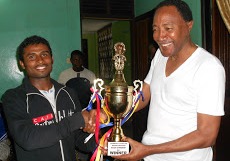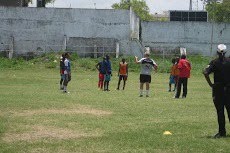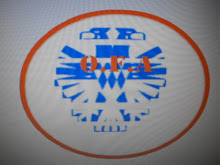 |
No more underdogs In African football
As I sat there at the Adokiye Amiesimaka stadium, Port Harcourt Nigeria and watched Sierra Leone mastermind a more than deserved 0-0 versus African champions Ivory Coast, I could not help but marvel at the latest trend in African football.
One day earlier, as coach of the Super Eagles of Nigeria, I witnessed also first hand, problems dealing with the assault and fight that the Tanzanians put up against us in Dar es Salaam. So hard was the fight that one could arguably say we might have been lucky to come away with a point. Though I feel my players deserved it.
On the same day, South Africa lost away to Mauritania 3-1 in a hard-fought encounter. These are scorelines that were near unthinkable 10 years ago, but here we are living it up in reality.
While the Ivorians can argue that they were missing Yaya Toure etc and Nigeria’s Super Eagles were fielding not just a new coach and new team, but players who trained just two days together for the first time before travelling out to Tanzania, the fact still remains that this would not have happened in the past. So why now?
My personal experience was that the erstwhile smaller nations are not so relatively naive anymore like they used to be. They defend better now and prepare better for the ‘big nations’. Tanzania trained for two weeks as a team in Turkey prior to facing the Super Eagles as opposed to the latter’s two-day preparations.
The general knowledge of the game among smaller nations is much better now as they regroup better to defend as a team and sometimes take the fight up to the faces of the big nations.
Many smaller nations now have foreign-based professionals all over the world polishing their trade, sometimes in lower European but competitive leagues and surprise the so-called top nations when they meet.
The most significant reason, in my opinion, why these big nations struggle versus the smaller ones is the dwindling number of African players (from these big nations) in the major top European clubs and leagues, as was the case in the past.
You may ask why that should be decisive. Well, playing regularly in a top club and/or league gives you that extra edge to eventually make the difference when you play against players with less opportunities. Most especially when your team boasts several of them assembled together simultaneously.
Take Nigeria (Super Eagles) of the 90s or Cameroon. We had top players in most major club sides and leagues in Europe, more than most African nations, and could rely on these players to often make the difference when we played qualifiers in Africa for major tournaments.
This is where the dilemma takes a twist. For major club sides to come buying again we have no choice but to improve our fortunes at the national team levels in major world competitions like the World Cup and African Nations Cup.
The situation for a neutral spectator is heaven-sent as match results are now less predictable, unlike they used to be in the past.
In as much as this is not a welcome situation for some of us, this is the reality of world football today. As you may have noticed, football nations rarely lose by 7-0, as was the case in the past. It shows also how matured all nations have become.
Having said that, this is in no way an excuse for faltering top nations like ours. With the populations that some of us have, we should continue to dominate African and world soccer.
Though the smaller nations are getting more difficult to break, it is up to nations like Nigeria, Ivory Coast and South Africa to raise our level of play to continue to dominate.



























































































